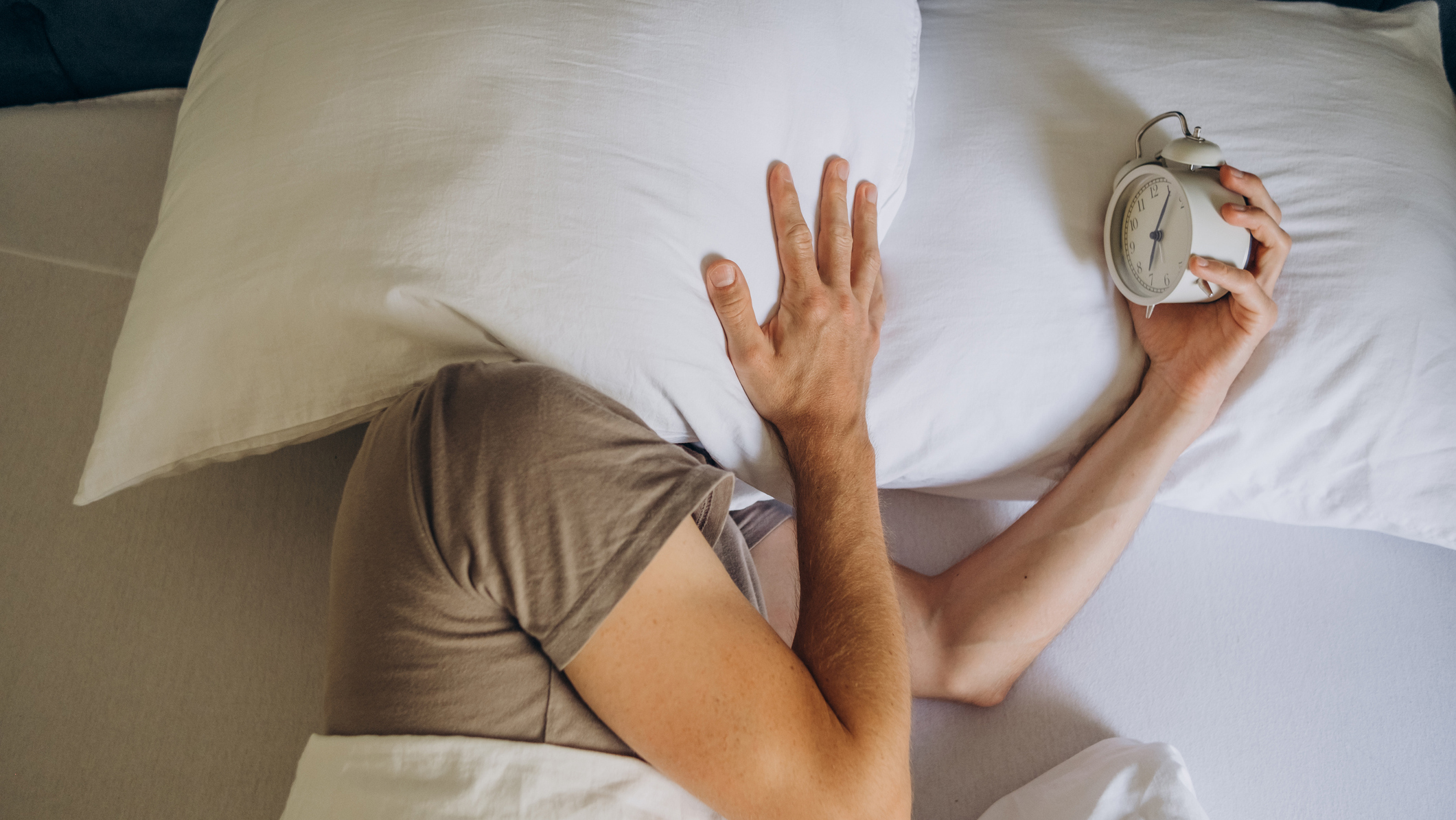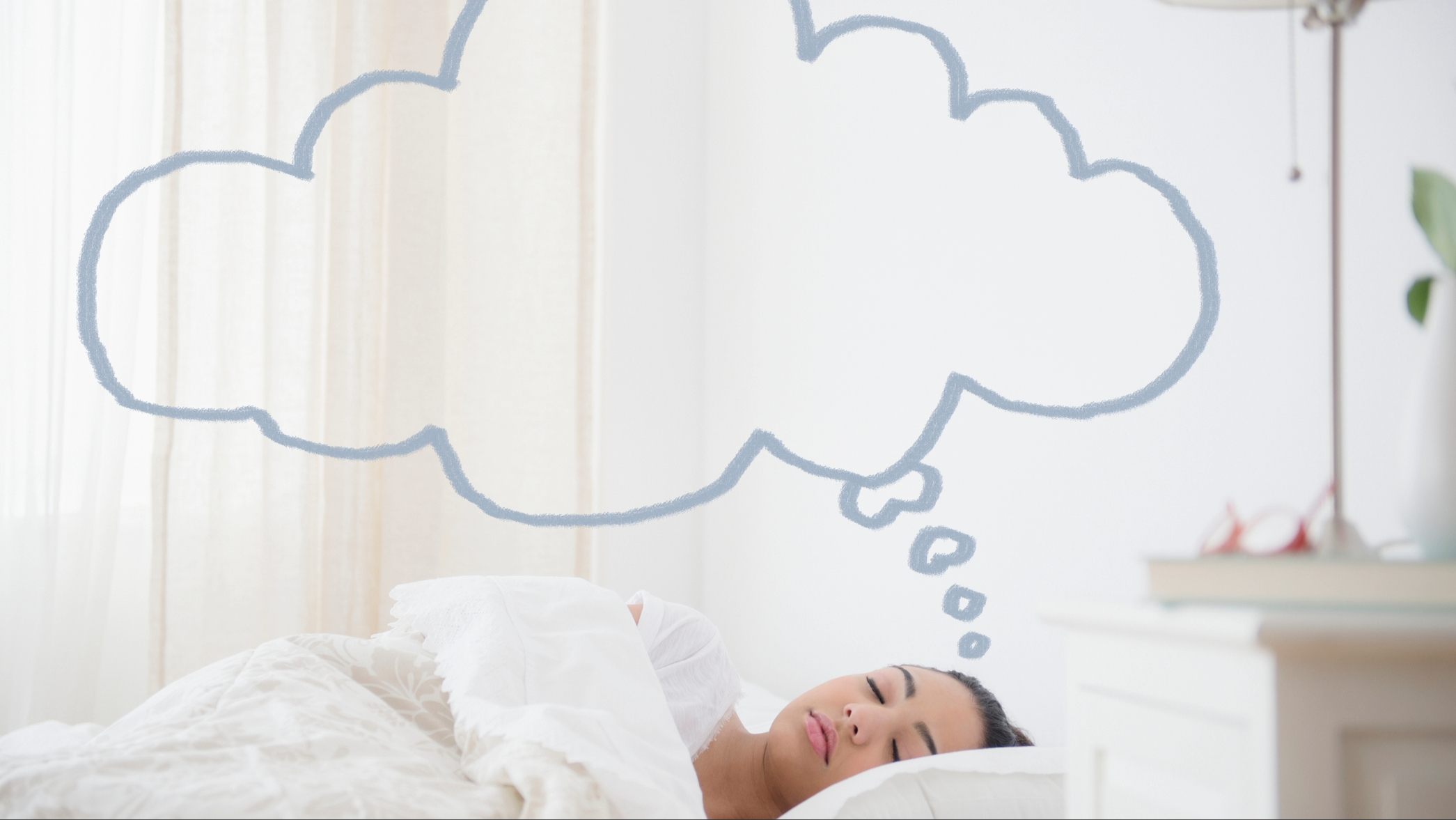Expert shares the surprising role cortisol plays in our sleep — and why it's just as important as melatonin
This stress hormone actually helps you sleep better

You’ve likely heard of cortisol as “the stress hormone,” the one that spikes when your boss drops a big project in your inbox or when you’re running late and stuck in traffic.
But cortisol is more than just your internal “let’s get out of here” system; it’s also a key player in how your body regulates sleep.
This sleep hormone follows a natural 24-hour rhythm that helps you wake up feeling alert and allows the body to properly wind down at night. When it’s not functioning properly, your sleep may suffer.
We connected with Andrew Franklyn-Miller, MBBS, PhD, Chief Medical and Innovation Officer at Nuritas, and reviewed research on the relationship between sleep and cortisol, to share how cortisol plays a role in our sleep.
We’ll explore the science behind how cortisol interacts with melatonin and your body’s circadian rhythm, how it aids rest or hinders it and expert-backed ways to keep cortisol in check throughout the day so you can reap more, better sleep.
What is cortisol?
Cortisol is a glucocorticoid hormone produced by the adrenal glands. It’s related to quite a few responses in the body, from handling the body’s stress response, to regulating inflammation, immune function and impacting metabolism.
It’s also integral to regulating the body’s sleep-wake cycle, interacting with hormones like melatonin and aligning with the circadian rhythm—the natural times your body wakes up and falls asleep.
“Cortisol promotes alertness by mobilizing energy stores, increasing blood glucose, and enhancing cognitive function during waking hours,” says Dr. Franklyn-Miller.
Get instant access to breaking news, the hottest reviews, great deals and helpful tips.

Why is cortisol important for sleep?
Cortisol is essential for a healthy sleep-wake cycle because its peaks and dips impact how quickly you fall asleep, when you wake up the next morning and may even impact your sleep cycles as you snooze.
When cortisol is disrupted, for example, if it’s surging in the evenings due to psychological stress, it can impact sleep quality, making it more challenging to fall asleep and stay asleep through the critical sleep stages, according to this study.
Cortisol helps you wake up in the morning
Think of cortisol as part of your body’s natural ‘get up and go’ response. According to research, the cortisol awakening response (CAR), a physiological response that results in a sharp rise in cortisol levels within 30 to 45 minutes of waking, prepares the body for daily activities by boosting metabolism and vigilance.

Cortisol levels peak in the early morning and decline throughout the day, reaching their lowest point at night to facilitate sleep onset and maintenance.
“While cortisol amplifies metabolic readiness, neural networks and neurotransmitters like the neurotransmitter orexin are primary in initiating and sustaining wakefulness,” says Dr. Franklyn-Miller.
Low morning cortisol levels can contribute to difficulty waking and feelings of lethargy, making it feel particularly tough to get out of bed in the morning.
Cortisol helps you wind down in the evening
Cortisol and melatonin are the seesaw hormones that help with sleep. Cortisol is suppressed at night when melatonin is high, allowing for restful sleep.
As morning approaches, rising cortisol levels inhibit melatonin production, making wakefulness easier, so you feel less groggy in the morning.
“Dysregulation, such as stress-induced cortisol elevation at night, can suppress melatonin synthesis, delaying sleep onset or reducing sleep depth,” says Dr. Franklyn-Miller.

Cortisol can impact your sleep cycles
Tiny pulses of nocturnal cortisol still spike during the night, especially between sleep stages, particularly during rapid eye movement (REM) sleep or brief awakenings, says Dr. Franklyn-Miller.
In healthy sleepers, these blips act as micro-check-ins, making sure your body temperature, blood sugar, and memory-storage tasks stay on track.
“However, excessive spikes, often triggered by stress, anxiety, or sleep disorders like insomnia, can disrupt sleep architecture by reducing deep slow-wave sleep or fragmenting REM sleep,” he says.
Those middle-of-the-night disruptions negatively impact sleep quality, causing fatigue and impairing function during the day. Not getting enough sleep has been related to higher levels of cortisol.

Can cortisol disrupt sleep?
Yes, cortisol changes can disrupt sleep. If it’s not higher in the morning and lower in the evening, it can impact your ability to fall asleep and stay asleep.
Low morning levels of this stress hormone, cortisol, can contribute to difficulty waking and feelings of lethargy.
The CAR is critical for mobilizing energy and promoting alertness, and its blunting, as seen in adrenal insufficiency or chronic fatigue syndrome, can lead to sluggishness and trouble getting out of bed, Dr. Franklyn-Miller says.
Other factors, such as poor sleep quality or circadian misalignment, may exacerbate this.
If you’re under chronic stress, the body’s fight-or-flight response (hi, cortisol) doesn’t power down as it should. That can have a direct impact on your ability to fall asleep, stay asleep, and wake up feeling rested.
How to regulate cortisol levels for better sleep
As of right now, many popular wearables can’t detect cortisol levels in sweat to tell you if that hormone is operating optimally or not. But you can try to help regulate cortisol by supporting healthy circadian rhythm functioning, Dr. Franklyn-Miller suggests. Try these tips:
Get light exposure after waking in the morning. Aim for 10 to 30 minutes of natural sunlight or bright light (10,000 lux) within an hour of waking to boost the CAR and suppress melatonin so you feel more awake and alert.
Stick with a consistent sleep schedule. There’s a reason you read this tip in most of our sleep articles: Because it works. Regular bed and wake times stabilize circadian rhythms, ensuring low nighttime cortisol and a robust morning peak.
Practice stress management. Aim for at least 10 minutes daily to reduce chronic stress and lower nighttime cortisol, suggests research in the Journal of Clinical Endocrinology & Metabolism (2005). Better stress management can result in falling asleep faster and staying asleep.

Eat a balanced diet. Try to keep meals lower in carbohydrates closer to bedtime to stabilize blood sugar and help prevent cortisol spikes from hypoglycemia, suggests Dr. Franklyn-Miller. Avoiding late-in-the-day caffeine or heavy meals can help with evening cortisol remaining low.
Be mindful of exercise timing. Try to give your body a few hours to unwind after an evening exercise sesh if that’s the only time you can squeeze it in. Moderate exercise in the morning or afternoon supports healthy cortisol rhythms, while intense evening workouts may elevate nighttime cortisol, according to the Journal of Neuroendocrinology (2003).
Limit blue light at night. Reducing screen time can help enhance melatonin and suppress cortisol.
Use relaxation techniques before bed. Performing calming activities like reading or gentle yoga can lower evening cortisol, focusing on increasing heart rate variability and parasympathetic nervous activity, promoting restful sleep, according to the Journal of Clinical Endocrinology & Metabolism (2005).
Diana is an experienced journalist and editor who covers health and wellbeing, creating content for a range of leading brands including Real Simple, People, Good Housekeeping, Headspace, and WebMD. For Tom’s Guide, Diana focuses on sleep health, mattresses, and fitness equipment. Diana has reviewed mattresses from top bed brands including Saatva and Tempur-Pedic, writing helpful guides full of her top tips on how to buy the right mattress and how to keep your bed clean. Recently, Diana’s focus has turned to sleep health, where she talks with GPs, neuroscientists and chiropractors to explore subjects like insomnia and sleep talking.
You must confirm your public display name before commenting
Please logout and then login again, you will then be prompted to enter your display name.
 Club Benefits
Club Benefits






